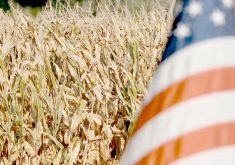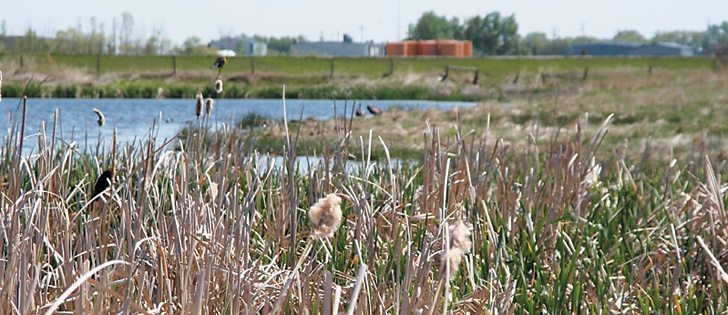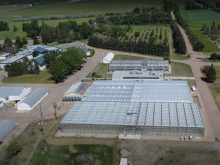On Aug. 15, federal politicians gathered in southeastern Manitoba to announce aid money and loans to keep the hog industry going.
On Aug. 24, federal politicians gathered in southwestern Manitoba to announce government support for the biofuel industry.
It made analyst Al Mussell wonder if he was taking crazy pills.
“I get a little bit fired up,” said Mussell, an economist with the George Morris Centre in Guelph, Ont.
“Somebody doesn’t understand. It’s troubling.”
That’s because Mussell considers biofuel production to be one of the main culprits behind the significant slump in hog industry fortunes.
Read Also

Alberta crop diversification centres receive funding
$5.2 million of provincial funding pumped into crop diversity research centres
He said government money provided to the hog industry to help it through this present crisis will be neutralized by government money used to support the biofuel industry.
Biofuel is produced from the same feed grain on which livestock producers rely.
“It’s almost as if we’ve made a decision for pork – and the cattle aren’t far behind – that it’s important for Canada to have the industry, so we’re going to extend it a lifeline, but oh, by the way, we’ve got a separate (biofuel) policy that just knocks the knees out from under it,” Mussell said.
Biofuel boosters say ethanol and biodiesel production don’t necessarily undermine the livestock industry because Canada produces an abundance of crops.
However, Mussell said the only factor that matters is whether biofuel production causes feed grain to be imported into Canada rather than exported.
If biofuel eats up the surplus feed grain in Canada, then prices will be set on an “import basis,” which is the American price plus transportation.
“Wherever Canadian pork ends up, it’s going to have a lot of freight on it,” Mussell said.
“How on earth are you going to pay the freight to bring it in, transform the feed into the hog, slaughter the hog and pay the freight again to export the pork and think you’re going to be competitive?”
In Ontario, large ethanol plants use so much corn that the province now imports from the United States, boosting corn prices across the province and making livestock production uncompetitive compared to the U.S. Midwest.
The biofuel industry is less developed on the Prairies, but Mussell said any increase will hurt livestock producers. The region already uses U.S. corn, causing an import basis to exist in prairie feedgrain prices.
“I’m amazed at how much corn comes in,” Mussell said. “Western Canada cannot afford to be on an import basis or anything approaching it.”
Following the end of the Crow Benefit transportation subsidy, Mussell and other economists predicted that the prairie livestock industry, especially in Manitoba, would bloom because crop prices would drop and be priced on an export basis, which is the Midwest U.S. price minus freight.
The livestock industry, partly propelled by that logic, expanded to fill that role, aided by a weak Canadian dollar and an open border.
But a number of factors have severely weakened the southern Manitoba industry, including trade blockages and a strengthening Canadian dollar.
Mussell said he is infuriated to watch the federal government continue to promote the biofuel industry and ignore its damaging effect on the hog industry.
“We need leadership on this,” he said.
“I expect these people to understand that these are important decisions and they have far-reaching ramifications and if you don’t understand that, you’d better go back to square one.”















